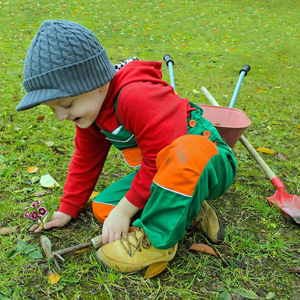Family Chores for Kids, Teens, and Even Dads
 Studies definitively show that children and teens who partake in family chores and assume family or community responsibilities are ultimately happier with themselves and their families, have better family values, higher self-esteem, and grow up to become more productive members of society.
Studies definitively show that children and teens who partake in family chores and assume family or community responsibilities are ultimately happier with themselves and their families, have better family values, higher self-esteem, and grow up to become more productive members of society.
Families who work together around the home also have a better bond with each other. Helping out around the house teaches everyone in the family the importance of contributing to a team. For children and teens, chores also instill a sense of value and competency, both of which help to build better self-esteem. When dads contribute regularly, it lessens the load for mom, shows that he’s a part of the team, and sets an important example for his children.
Many parents who don’t have their children do regular chores until they enter their teen years have a tough time implementing them later. Start early so kids grow up with the expectation that chores are normal. Little ones can help sort laundry, make the bed and clean up toys, while older chores for kids can include vacuuming, unloading the dishwasher and taking out the trash. By about age twelve, chores for teens can include almost all household tasks, and when they are old enough to drive, sending them out to do simple errands is totally appropriate.
It’s normal to find it challenging to implement regular chores for your kids, but don’t let that stop you from sticking with it, especially with teenagers. Teens are often busier with school, part-time jobs, and very active social lives outside of the home, so it’s easier for parents to let their regular household duties slide.
How to get kids, teens, and even Dad, to contribute to family chores:
Start early and be consistent. If children have grown up with the expectation that chores are normal, you will encounter less resistance along the way. Take advantage of that great “can do” attitude kids have when they are little to help them master chores and make them a habit.
 Assign age appropriate chores so that everyone can see the work that needs to be done and how the whole family can participate. Don’t expect your toddler to be able to do the same chores as your teen. Use chore charts to give each family member chores that they can master and expect more from each child as they grow. If mom is also working outside the home, adult chores can be divided according to work schedules. Taking care of the family requires work 24/7 so participation by both adults will really ease the load and contribute to better inter-family relations.
Assign age appropriate chores so that everyone can see the work that needs to be done and how the whole family can participate. Don’t expect your toddler to be able to do the same chores as your teen. Use chore charts to give each family member chores that they can master and expect more from each child as they grow. If mom is also working outside the home, adult chores can be divided according to work schedules. Taking care of the family requires work 24/7 so participation by both adults will really ease the load and contribute to better inter-family relations.
Lead by example. Show younger kids exactly what you want them to do by demonstrating the task at hand and piling on the praise when they are done. Give teens specific instructions for tasks so they know precisely what is required and be sure to thank them when they consistently remember to complete their responsibilities.
Ask for help. Sometimes, all you need to do is ask your spouse for help. Your partner may be used to you tackling the bulk of chores, or not notice something that needs to be done around the house (even if it’s glaringly obvious to you)! Just ask.
Cleaning up the kitchen, pulling weeds, or shovelling the driveway are all great opportunities to chat about your day, or life in general, while working alongside your family members.
For more tips on getting your family to contribute:
- Read Delegate Chores and Motivate Your Family to Do More.
- Download our Age-Appropriate Chores List
- Use Chore Charts to delegate chores to kids, teens and Dad too.

Leave a Reply
Want to join the discussion?Feel free to contribute!